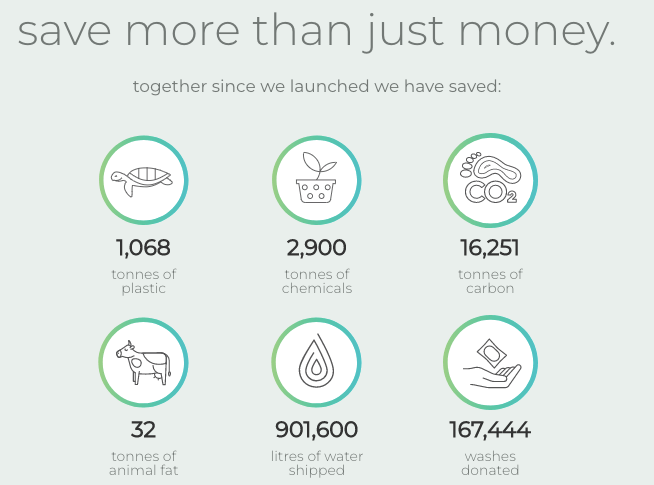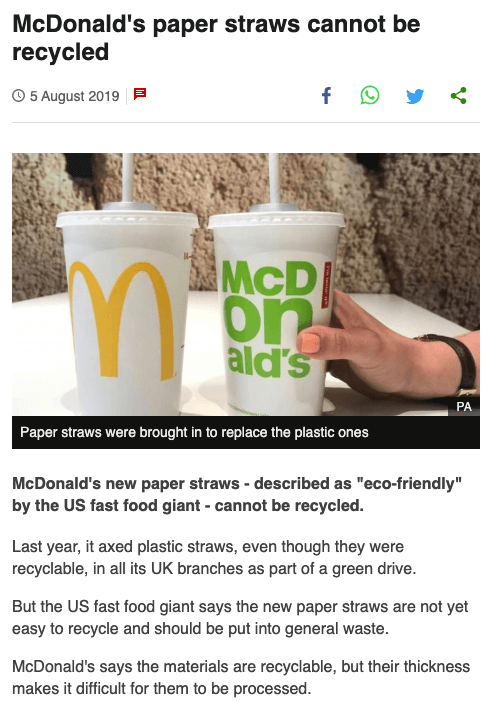Sustainable marketing is a great way to promote the eco-friendly aspects of your company, as long as you get it right
It’s natural for a business to use all of its genetic makeup to promote itself and stand out in its market. For example, SMEs frequently use grassroots beginnings or a local focus to give them a unique tone of voice, while larger companies pride themselves on winning industry awards.
Another strategy that is becoming more popular for companies looking to make their mark is sustainable marketing. Corporate Social Responsibility (CSR) is becoming a more common brand value, with the most recent Conference of Parties (COP) highlighting its 2023 objectives as:
- Reducing emissions
- Helping countries adapt
- Climate finance
Responsibility for the climate crisis is shared by governments, businesses, and individual consumers. So sharing your eco credentials could help you win more business accounts or increase customer loyalty, depending on your goals.
However, it is essential to plan and execute sustainable marketing carefully or your brand can leave itself open to heavy scrutiny.
What is sustainable marketing?
Sustainable marketing is the promotion of environmentally and socially responsible products, practices, and brand values. If you’ve ever spent a little bit more on something because you knew it was locally sourced or 100% recyclable, you’ve experienced sustainable marketing.
Sustainability marketing is one aspect of how you choose to position your brand, but used right, it can be very powerful, as the examples show below.
If you're looking for strategic marketing solutions to help manage how your brand is perceived in your customer's minds, check out our new brand positioning template, for Business Members.
Don't forget, all our branding and marketing tools are integrated across our RACE Growth System, designed to help you make smarter use of digital marketing to achieve your goals.
Examples of sustainable marketing
There are a number of approaches businesses could take to becoming more sustainable, such as:
- Donating profits to sustainable causes
- Sourcing sustainable materials and/or packaging
- Creating a product that contributes to sustainable living
Donating profits to sustainable causes
Sustainable commerce leaders, Patagonia, have pledged 15 of sales to the preservation and restoration of the natural environment since 1985. In 2022, that means a total of $140 million so far. They have also set an aim to be completely carbon neutral by 2025.

Sourcing sustainable materials and/or packaging
Household cleaning products supplier, Smol, offers cleaning spray tablets that dissolve in water and can be used with refillable spray bottles to eliminate single-use plastics.
Showing the importance of keeping your products relevant, smol is currently offering refillable aluminum hand sanitizer dispensers, amongst other plastic-free cleaning innovations.

Creating a product that contributes to sustainable living
Of course, another approach would be to create a business which is completely centered around sustainability, such as Treedom, a member of the B Corp Certification, verified by B Lab to meet high standards of social and environmental performance, transparency, and accountability.
Treedom enables individuals and businesses to gift/sponsor trees and provides an interface where receivers can view a personalized webpage about their tree.

How to implement your sustainable marketing strategies
The above 3 companies give just some examples of how you and your company can start to build sustainable marketing strategies.
Maybe you're hoping to reach more customers with sustainability messages across paid, owned, and earned media channels. Or, sustainability messages help you address your key personas' pain points and improve your checkout conversion rate.
Not everybody has a fully integrated digital marketing strategy. If that's you, sustainability marketing is a great starting point to build a plan around, with a few simple steps.
Wherever you are in your digital marketing journey, we've got marketing tools and templates to help. That's why we recommend our RACE Growth System. Start today by building your 90-day marketing plan, integrated across our popular RACE Framework of plan, reach, act, convert, engage.
As a member, you'll also unlock more advanced strategy and planning solutions to drive the success of your campaigns and always-on marketing activities.
Create your 90-day plan with the RACE Growth System
Download your free RACE Growth System guide today and unlock our three-step plan of Opportunity, Strategy and Action to grow your business.
Download guide
3 principals of sustainable marketing
As with any brand initiative, you need to consider the context of the issue you are tapping into, and how/why your brand fits as a solution in the mind of the customer.
Of course, you will also want to define your goals, both in terms of your sustainable action and the impact it has on your brand, so that your progress can be measured and celebrated.
The 3 key aspects of sustainable marketing are:
1. Your plan is long-term
Social and environmental issues are extremely large and need to be tackled on a larger time frame than seasonal promotions.
The public knows that sudden change is almost impossible, so you need an objective that targets high-scale change over a large timeframe.
LEGO's mission is to have the production of its LEGO bricks be fully sustainable by 2030. This was announced at the end of 2018, meaning this is a 12-year plan.
To check the longevity of your plan, ask yourself:
- Does your company have the means to consistently maintain this sustainability program?
- Does your sustainability program tackle a long-term issue that will be beneficial to be connected to in 10-20 years' time?
- If needs be, are you prepared to take a short-term loss to fully adopt your new practices and build towards long-term gain?
2. Your plan is consistent
It is easy to tell your customers that one aspect of your brand is eco-friendly, but what about other elements?
For example, imagine your brand sells a drink and you switch to new ingredients that are sustainably sourced. But are the bottles you sell that drink in recyclable? What about the labels used on the bottle?
Such a problem was brought to light when McDonald’s replaced its plastic straws with paper ones. Due to the thickness of the new straws, the company said that they were not yet easily processed and recycled by the company’s waste solution providers, so they should be put in the general waste. The story soon broke in the press:

Even though the makers of the straws, Transcend Packaging, issued a statement clarifying that the straws themselves were recyclable, which story do you think received the most attention and discussion on social media?
3. Your strategy is fully integrated across your business
With Smart Insights being champions of integrated marketing, this may not come as a surprise to you, but your sustainable marketing strategy is only as strong as the marketing plan behind it. At the very minimum, we recommend the following checks:
- Research how competitors are employing sustainable marketing
- Audit your customer journey to make sure your sustainable messages come through in a sensible and appropriate way at each stage in the marketing funnel.
- Cross-reference key messages in other campaigns and always-on activity to ensure consistency.
- Brief staff and stakeholders (particularly marketing, sales, and product) on your sustainability messages and where to find the key information.
- Continue to check and scan the environmental landscape, and be prepared to make changes.
Our RACE Growth System helps you manage every aspect of planning, managing, and optimizing your digital marketing strategy. All in an easy-to-use, easy-to-follow framework that’s been proven to get results. Download your free guide today.
Create your 90-day plan with the RACE Growth System
Download your free RACE Growth System guide today and unlock our three-step plan of Opportunity, Strategy and Action to grow your business.
Download guide
Key takeaway
The essence of sustainable marketing is that you position your brand as an active figure in an environmental or societal issue. It can humanize your brand messages and create another reason why customers should choose you over your competition.
But do not underestimate the commitment needed to participate in sustainable initiatives. These aren't simple 'buzzwords' or 'hot topics' – they are programs dedicated to reducing carbon emissions, increasing recyclable materials, and improving prospects for the next generation.
Is your brand willing to put its money where its mouth is?




















